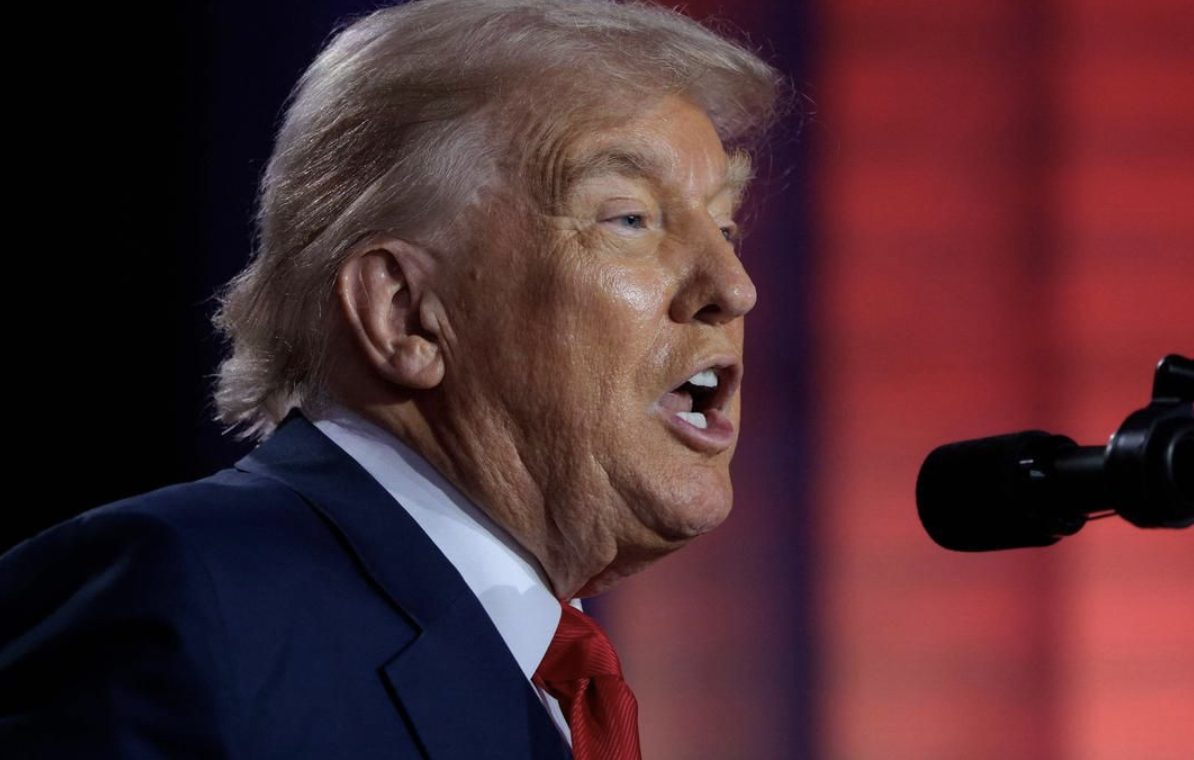 U.S. President Donald Trump and European Commission President Ursula von der Leyen jointly announced on Sunday (July 27) that the United States and the European Union have reached a framework trade agreement. The U.S.-EU agreement is similar to the key parts of the framework agreement reached by Trump with Japan last week. "We have agreed to impose a 15% direct tariff on cars and all other goods," Trump said. However, this rate does not apply to steel and aluminum, which will still maintain a 50% tariff, although von der Leyen said that tariffs on steel and aluminum will be reduced and replaced by a quota system. The United States will impose a 15% tariff on most EU imports, including cars, which is half of the 30% tariff previously threatened by Trump; the EU will increase its investment in the United States by $600 billion (about S$768.8 billion), purchase U.S. energy and defense purchases, etc. According to the New York Times and Reuters, Trump and von der Leyen revealed the details of the trade agreement to the media one hour after meeting at the Turnberry Golf Course in South Ayrshire, Scotland. Trump said the EU has agreed to purchase $750 billion worth of U.S. energy products. Von der Leyen told reporters that the deal will be completed in three years. Trump said the EU also agreed to increase its investment in the United States by $600 billion on an existing basis and purchase U.S. military equipment. "I think this is the biggest deal ever," von der Leyen said. "We have a trade deal with the world's largest economy. This is a major deal that will give us stability and predictability."Meanwhile, U.S. Commerce Secretary Lutnick said that the August 1 deadline for tariff negotiations set by the United States for trading partners has been set and will not be extended. According to AFP, Lutnick said in an interview with Fox News on Sunday (July 27) that the date for imposing tariffs on trading partners on August 1 has been set, there will be no extension, and there will be no grace period. "The tariffs will officially take effect, customs will start collecting money, and everything will start from then on." Lutnick indicated that U.S. President Trump is still willing to continue negotiations after the tariff measures take effect.
U.S. President Donald Trump and European Commission President Ursula von der Leyen jointly announced on Sunday (July 27) that the United States and the European Union have reached a framework trade agreement. The U.S.-EU agreement is similar to the key parts of the framework agreement reached by Trump with Japan last week. "We have agreed to impose a 15% direct tariff on cars and all other goods," Trump said. However, this rate does not apply to steel and aluminum, which will still maintain a 50% tariff, although von der Leyen said that tariffs on steel and aluminum will be reduced and replaced by a quota system. The United States will impose a 15% tariff on most EU imports, including cars, which is half of the 30% tariff previously threatened by Trump; the EU will increase its investment in the United States by $600 billion (about S$768.8 billion), purchase U.S. energy and defense purchases, etc. According to the New York Times and Reuters, Trump and von der Leyen revealed the details of the trade agreement to the media one hour after meeting at the Turnberry Golf Course in South Ayrshire, Scotland. Trump said the EU has agreed to purchase $750 billion worth of U.S. energy products. Von der Leyen told reporters that the deal will be completed in three years. Trump said the EU also agreed to increase its investment in the United States by $600 billion on an existing basis and purchase U.S. military equipment. "I think this is the biggest deal ever," von der Leyen said. "We have a trade deal with the world's largest economy. This is a major deal that will give us stability and predictability."Meanwhile, U.S. Commerce Secretary Lutnick said that the August 1 deadline for tariff negotiations set by the United States for trading partners has been set and will not be extended. According to AFP, Lutnick said in an interview with Fox News on Sunday (July 27) that the date for imposing tariffs on trading partners on August 1 has been set, there will be no extension, and there will be no grace period. "The tariffs will officially take effect, customs will start collecting money, and everything will start from then on." Lutnick indicated that U.S. President Trump is still willing to continue negotiations after the tariff measures take effect.
At a time when the global trade pattern is being rapidly reshaped, on the one hand, low-tax cooperation between the United States and Europe has begun to advance, and on the other hand, high-tax barriers with other countries have been quickly implemented. Hanyue International closely monitors the dynamics of the tariff negotiation window. Relying on our in-depth experience in international logistics and trade rules, we flexibly formulate transportation and export strategies for customers, help stabilize transportation costs, optimize shipment rhythm, and ensure stable business operations in a global uncertain environment. If you need the latest tariff list or personalized response strategy, please feel free to contact our customer service.






